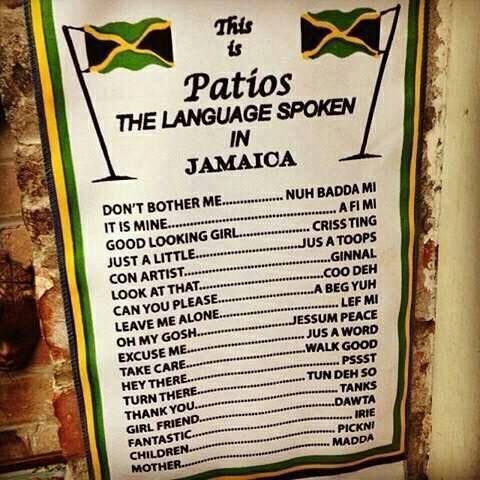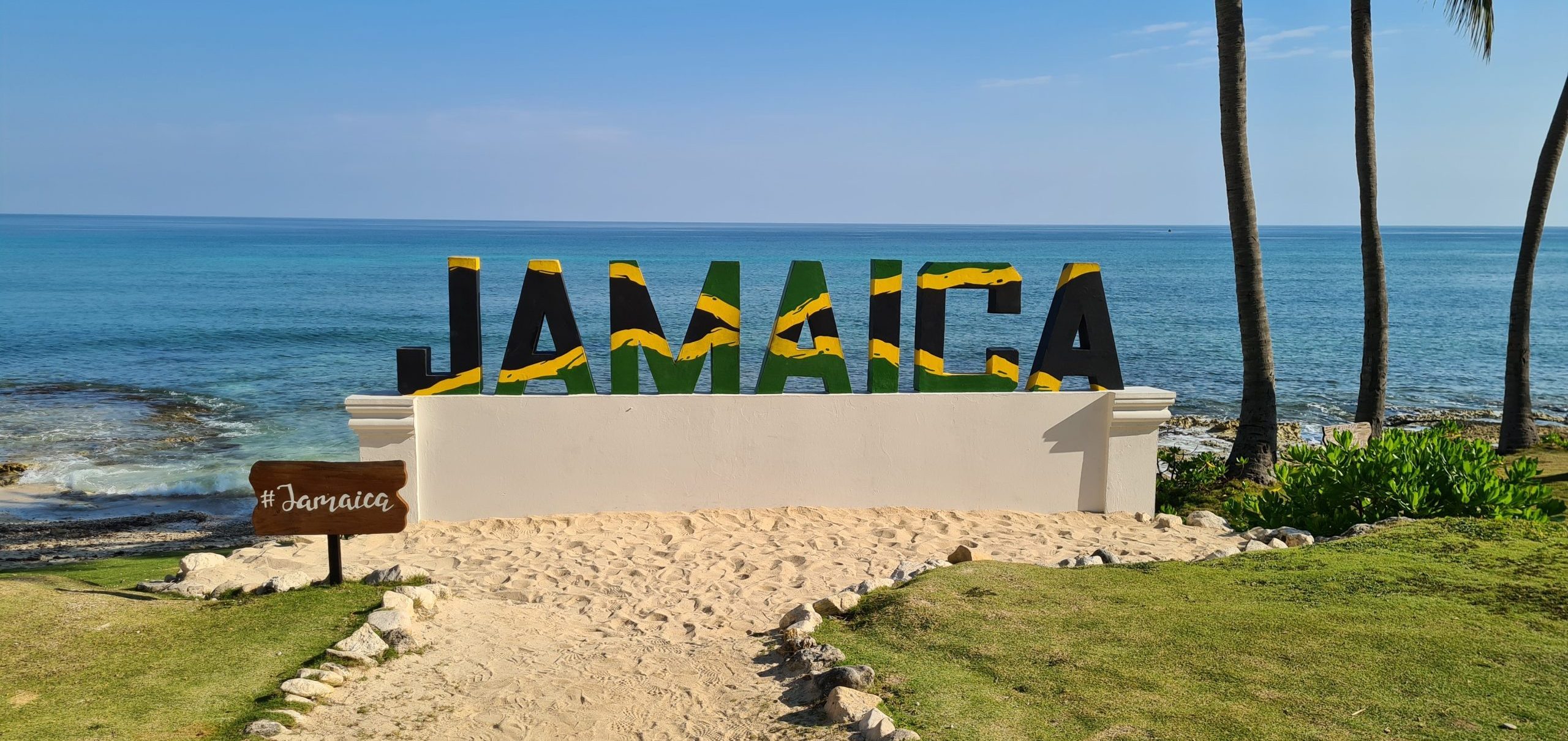Jamaican Patois, a linguistic marvel woven into the fabric of the island’s rich cultural heritage, is a captivating blend of English, African, and indigenous influences. This unique dialect, with its rhythmic cadence and colorful expressions, has become an integral part of Jamaican identity. Among the many facets that make Patois so fascinating is its unapologetic use of curse words, adding a distinct flavor to the language.
The Art of Jamaican Cursing: A Cultural Phenomenon
In Jamaican culture, the use of curse words is not merely a means of venting frustration or expressing anger; it is an art form in itself. These expressions, often laced with humor and wit, have become ingrained in the daily vernacular, transcending socioeconomic boundaries and age groups. From the bustling streets of Kingston to the serene beaches of Negril, the melodic rhythm of Jamaican Patois curse words dances on the tongues of the island’s residents.
Understanding the Context and Intent
 While some curse words may sound harsh or offensive to the uninitiated ear, it is crucial to understand the context and intent behind their usage. In Jamaican Patois, these expressions are often employed as exclamations of surprise, frustration, or even endearment, rather than solely as insults or derogatory remarks. The nuances and subtleties of their usage are deeply rooted in the island’s cultural traditions, adding layers of meaning and depth to everyday conversations.
While some curse words may sound harsh or offensive to the uninitiated ear, it is crucial to understand the context and intent behind their usage. In Jamaican Patois, these expressions are often employed as exclamations of surprise, frustration, or even endearment, rather than solely as insults or derogatory remarks. The nuances and subtleties of their usage are deeply rooted in the island’s cultural traditions, adding layers of meaning and depth to everyday conversations.
A Linguistic Journey Through Jamaican Curse Words
1. “Bumboclaat”
One of the most popular and versatile curse words in Jamaica, “bumboclaat” is a term that can express a wide range of emotions, from shock and anger to frustration and surprise. Derived from the words “bumbo” (bottom) and “claat” (a Jamaican pronunciation of “cloth”), it literally refers to menstrual pads or toilet paper. However, its usage transcends its literal meaning, becoming an all-encompassing exclamation that punctuates intense emotions.
2. “Suck Yuh Mada”
A highly offensive phrase, “suck yuh mada” is a disrespectful insult directed not only at the recipient but also at their mother. Translating to “suck your mother,” this term is often used in heated arguments or confrontations, and its usage can quickly escalate tensions. It is advisable to exercise caution when employing this phrase, as it can be perceived as deeply insulting by some Jamaicans.
3. “Kiss Mi Raas”
Literally translating to “kiss my ass,” this phrase is a playful yet defiant way of expressing dislike or rejection towards someone or something. It is often used as a retort or a lighthearted jab, adding a touch of humor to the conversation while still conveying a sense of defiance.
4. “Batty Hole” and “Pussyhole”
These terms, both referring to specific anatomical regions, are used as insults to express dislike or contempt towards someone. “Batty hole” is the Jamaican equivalent of “asshole,” while “pussyhole” is a more vulgar and offensive term that is best avoided in polite company.
5. “Bloodclaat”
Derived from the words “blood” and “claat” (cloth), “bloodclaat” is a versatile curse word that can be used as an adjective or an exclamation. Its direct translation, “blood cloth,” refers to a sanitary towel, but its usage extends far beyond this literal meaning. It is often employed to express frustration, disbelief, or anger, adding an emphatic punch to one’s statements.
6. “Bumbohole” and “Bumbo”
“Bumbohole” is another term for “asshole,” while “bumbo” is a curse word that can be used to express a range of emotions, from anger and surprise to grief. It is often suffixed with other Patois terms, such as “bumboclaat” or “bumbocleet,” to enhance its meaning and impact.
7. “Blood Fyah”
A milder curse word, “blood fyah” is typically used when one is shocked or surprised. It is a way of expressing disbelief or amazement, often in response to an unexpected or surprising situation.
8. “Raasclaat”
Literally translating to “bum cloth,” “raasclaat” is a term that compares something or someone to toilet paper or waste. It is often used as an adjective to express dissatisfaction or dislike, implying that the subject of the insult is as undesirable or worthless as toilet paper.
The Art of Jamaican Cursing: A Cultural Lens
While these curse words may seem vulgar or offensive to some, they are an integral part of Jamaican culture and language. Understanding their usage and context provides a deeper insight into the island’s vibrant traditions and the unique perspectives of its people. Whether used in casual conversations or as a form of artistic expression, Jamaican Patois curse words are a testament to the richness and diversity of this captivating island nation.
Embracing Cultural Diversity and Sensitivity
It is important to note that while exploring and understanding the usage of curse words can be an enriching cultural experience, it is crucial to exercise caution and respect when employing these expressions. Some curse words may be considered highly offensive or inappropriate in certain contexts, and it is advisable to use discretion and sensitivity when engaging with Jamaican Patois and its colorful vernacular.
Conclusion
Jamaican Patois curse words are more than just a collection of vulgar expressions; they are a window into the island’s vibrant culture, history, and traditions. By delving into their meanings and nuances, we gain a deeper appreciation for the linguistic tapestry that is woven into the fabric of Jamaican society. Whether you are a curious traveler, a language enthusiast, or simply someone who appreciates the richness of cultural diversity, exploring the world of Jamaican Patois curse words is a journey that promises to be both enlightening and entertaining.
For recommendations on some of the best times to visit Jamaica, you can check out our guide here.
—
If you’re traveling to Jamaica alone, ensure you take all the necessary measures to keep safe. Read about how you can stay safe while visiting Jamaica. If you decide to visit any resort, be sure to tag us in your photos and videos @resortcaribbean, and follow our socials: Instagram, Facebook, YouTube.







![What You Need to Know before Visiting Azul Beach Resort Negril Jamaica Gourmet All-Inclusive [Resort Review] Azul Beach Resort Pool](https://resortcaribbean.co/wp-content/uploads/2021/09/20210828_091210-2-100x70.jpg)
![Visiting Ocean Coral Spring – One of Jamaica’s Most Famous Resorts [Resort Review] Visiting Ocean Coral Spring - One of Jamaica's Most Famous Resorts](https://resortcaribbean.co/wp-content/uploads/2021/11/20211106_155809-scaled-e1716408051807-100x70.jpg)
[…] Jamaican Curse Words and Their Meaning […]